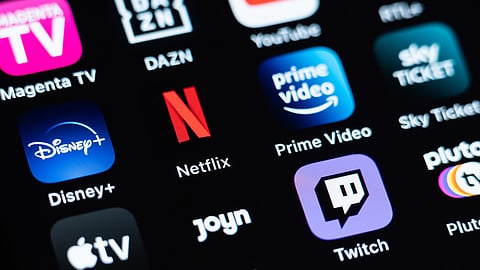South Africa calls for more streaming regulation (Netflix, Disney+ in the crosshairs)
In little more than a decade, streamers have shaken the TV industry to its core, laid waste to cinema, blurred the lines between film and television and rewritten the business relations between independent producers and commissioners. Government responses in different parts of the world have reflected local political and bureaucratic traditions, and elicited varying degrees of greed and paranoia. Some regimes have approached online video in terms of cultural identity, while others have chosen to harness streaming as an arm of industrial policy (employment creation, spectrum rationing, taxation and licensing). South Africa now finds itself calling for more regulations on international streaming sites such as Netflix, Disney + and Amazon Prime in an effort to level the playing field with local services like Showmax and DSTV. Jan Vermeulen of MyBroadband offers an in-depth look at the government's plans, wondering whether this is setting the blueprint for a fair fight, or if the local industry is heading for a world of hurt. – Asime Nyide
ANC wants to regulate Netflix and Disney+ in South Africa
By Jan Vermeulen
The ANC has proposed that South Africa develop a governance framework that allows domestic broadcasters to compete on fair terms with big international players like Netflix, Disney+, and Amazon Prime Video.
This includes regulations on local content requirements, licensing and taxation.
ANC stalwart Khumbudzo Ntshavheni reported the party's position on the issue at a media briefing during its policy conference over the weekend.
Ntshavheni serves as South Africa's communications minister but emphasised that she was not appearing in her capacity as a member of President Cyril Ramaphosa's cabinet.
She said she is considered a media and ICT expert within the party and acted as rapporteur for the commission that discussed the ANC's policies in these domains.
Ntshavheni gave her feedback on the ANC's proposed governance framework in the context of a suggestion that the SABC must provide a South African history channel.
This channel would also develop educational programming about the African continent's history.
"Streaming services will not provide us with that," Ntshavheni stated.
"We have no control over their content requirements."
Ntshavheni said that South Africa couldn't have international competitors in the domestic broadcasting industry that don't pay tax, have no licence requirements, and no local content obligations.
She said the European Union and the United States have successfully regulated video streaming services.
"We must do the same in South Africa," said Ntshavheni.
The ANC's policy position echoes complaints from DStv operator MultiChoice about the lack of regulation of international video entertainment giants like Netflix, Disney+, Amazon Prime Video and Britbox.
MultiChoice Group CEO Calvo Mawela previously said these global video streaming services must comply with BEE, contribute to local content, and pay tax in South Africa.
Netflix announced in March that it would invest over R900 million in four South Africa-based productions over the next two years. These include one international and three local productions, filmed in South Africa in 2022 and 2023.
The international production is Project Panda — the working title of the international series One Piece — a live-action adaptation of the successful manga/anime show.
Netflix has already produced and acquired numerous South African titles for its platform.
This year, it has already released the films Silverton Siege, Collision, Amandla, and Jewel. Netflix also released the limited series Justice Served and Savage Beauty, and the stand-up comedy special, Only Jokes Allowed.
In addition to Project Panda, Netflix also filmed portions of its Resident Evil reboot series in Cape Town, featuring several South African actors.
Last year, Netflix released South African productions such as the award-winning documentary My Octopus Teacher, I am All Girls, and Loyiso Gola's comedy special Unlearning.
It also launched a new season of the popular show Blood & Water, and announced that another is on the way.
Later this month, Netflix will debut its first original Afrikaans-language series, Ludik.
The action show was co-produced by Anele Mdoda, Paul Buys and Frankie Du Toit through their company Rose and Oaks Media.
Amazon Prime Video also has a slate of Afrikaans films and shows on its platform, which appear to be mainly acquired from Namibian production companies.
Although MultiChoice and the ANC agree that South Africa should impose regulations on streaming services, the governing party also has DStv in its crosshairs — particularly SuperSport.
In a policy discussion document issued ahead of the ANC's conference, the party said sporting bodies should not sell broadcast rights exclusively. It also said the SABC should broadcast all sports of national interest.
In a separate matter, the SABC lodged a Competition Commission complaint against SuperSport in July over sub-licensing restrictions that blocked the state-owned broadcaster from showing matches on satellite and online streaming services.
Read also:

